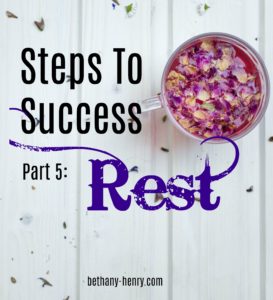So you’ve finished the first draft of your story- Congratulations!!
That is a very big deal. No matter what shape your story is in, I’m so proud of you! Getting those words down on a page and creating the start of your story is a huge accomplishment.
Are you feeling excited? Proud? A bit exhausted and possibly delirious?
Finishing drafts is always a bit bittersweet for me- I feel successful and relieved to have completed my project but it’s usually mixed with fear of what comes next and some anxiety that what I’ve written won’t be good enough.
Let’s not get bogged down by this fear and anxiety.
Whether our draft is great or lousy, full length or barely there, dynamic, flat, or completely scattered- we completed our draft! And that’s a win, my friends 🙂
So now that we’ve finished our first draft… what’s next?
- First of all we should double check (triple check?) that we’ve saved our writing in a safe place. Maybe this goes without saying… but I’ll say it anyway because it’s an important habit to have.
- We should CELEBRATE!!! And maybe (definitely) brag a bit because we did it! We finished our draft! And that’s awesome.
-
The next step in our writing journey is to stop and rest.
Yup, that’s right: REST. You may be all fired up and excited about your writing and want to just keep going forward but trust me on this. There are several reason why taking breaks from our writing is important and how it can ultimately help our writing (and our sanity).
This post is Part 5 of the Steps to Success series designed to walk us through the process of writing a novel from beginning to end. As always, personal preferences and experiences differ. This guide is based in part on my own experiences as well as from authors I have worked with and/or learned from along the way.
Find steps 1-4 here: Getting Started (where we look at our goals for writing and find our starting point), Developing Content (where we dig a bit deeper into what story we want to tell), Creating an Outline (where we brainstorm the basic structure of our story), and The First Draft (where we get our writing plans in place and start writing our story).
Why is rest so important?
1. We need to rest so that we don’t burn out.
We need to look after and love ourselves. Focusing on our writing and getting things done can be great! But if our self care is being pushed aside then it’s not sustainable for long periods of time. If we want to be writers then we need to be finding ways to incorporate writing throughout our lives in a healthy way. Balance is key.
Taking some time regularly amidst our writing can give us important pauses to evaluate our own health and sanity. We don’t want to be neglecting ourselves or other things important to us. That’s why pausing to rest after our first draft is such a big deal.
A few questions to ask ourselves are:
- Are we getting enough sleep? It seems so simple but if you’re anything like me, this one is really hard.
- Are we eating healthy and drinking water? At least a little bit?
- Are we having any “relax” time to journal, listen to music, read a book, take a walk, unwind etc?
- Are we getting time with family and friends?
This is a pretty basic self care checklist but everyone should have their own things to check in on to see how they’re doing.
2. We need to let our story sit alone for a while
Besides needing to rest in order to care for ourselves, we also need to rest in order to care for our stories. It may seem like a good idea to just charge forward and get the story finished as quickly as possible. Ironically, for many writers taking a break can actually help finish a story faster overall.
This is because taking a break helps us gain perspective and distance from our stories.
Ever see someone making an emotional mistake and think, “They’re too close to the situation to see clearly?” This is us with our writing. We’ve built our world, created our characters, and spent all this time immersed in our story.
We can’t see clearly.
By taking some time away from our draft, even if it’s only a few days, we can regain some distance from our story which can help us see it in new ways. This enables us to see plot holes we’d overlooked, see new ways for characters to interact, and discover whether or not anything we wrote actually makes any sense. *crosses fingers*
It’s important that we are able to look at our own writing critically and evaluate it to see if it’s saying what we want it to say. We’ll be moving into doing revisions on our draft next (stay tuned!) but until we’ve stepped away from our writing for a time it is hard to have any sort of clarity in this.
Note: If you keep finding yourself thinking about your draft even after you’ve set it aside, maybe try jotting down these ideas on a separate sheet of paper and tucking it away. That way you don’t forget your brilliant new ideas but you’re still keeping the draft on hold until later.
![]()
What does this rest look like?
Rest is easier said than done sometimes. I have a hard time giving myself permission to stop working (it sounds crazy I know) and so it’s extremely helpful to look at what rest is and what it is not.
- Taking a break does not mean we’re quitting. Instead we are investing in ourselves being intentional in making a plan to return to our writing.
- Taking a break does not mean we’re becoming stagnant and lazy. Instead this can be a great time for us to use our time wisely and practice self care.
There is no set formula for rest.
- There is no magic number of days to set aside your draft. I’ve heard many writers recommend at least two weeks. I usually take a month or more depending on what else I’m working on during that time.
- There is no set tasks for self care to practice because everyone is different. While it is rejuvenating and restorative for me to drink tea, talk with close friends, and play ultimate frisbee (though not usually all at the same time), I bet you have you own, different things that make you feel like your best self. What makes you smile and feel alive? Those are your self care practices. Make sure they are happening in your life.
This time of rest can be such a wonderful time of experimenting with new writing ideas or picking up old ones. Often this is a great time to dig into a separate project you may be working on or to brainstorm what to write next.
As a compulsive planner (and speaking with the experience of a lifetime procrastinator 😉 ) I’d highly recommend having a set date to return to your story. This return date can be changed as needed (no worries) but having a plan in place to return to our writing is important to keep from letting life’s busyness take over and push our writing aside.
So let’s set aside our first draft, pencil in our return date, and sit back and relax. Rest is important and you’ve earned it <3
What are your favorite ways to celebrate your writing milestones and what are your top ways of practicing self care? Fair warning, I may steal some of your ideas next time I need to take a self care break… 🙂





